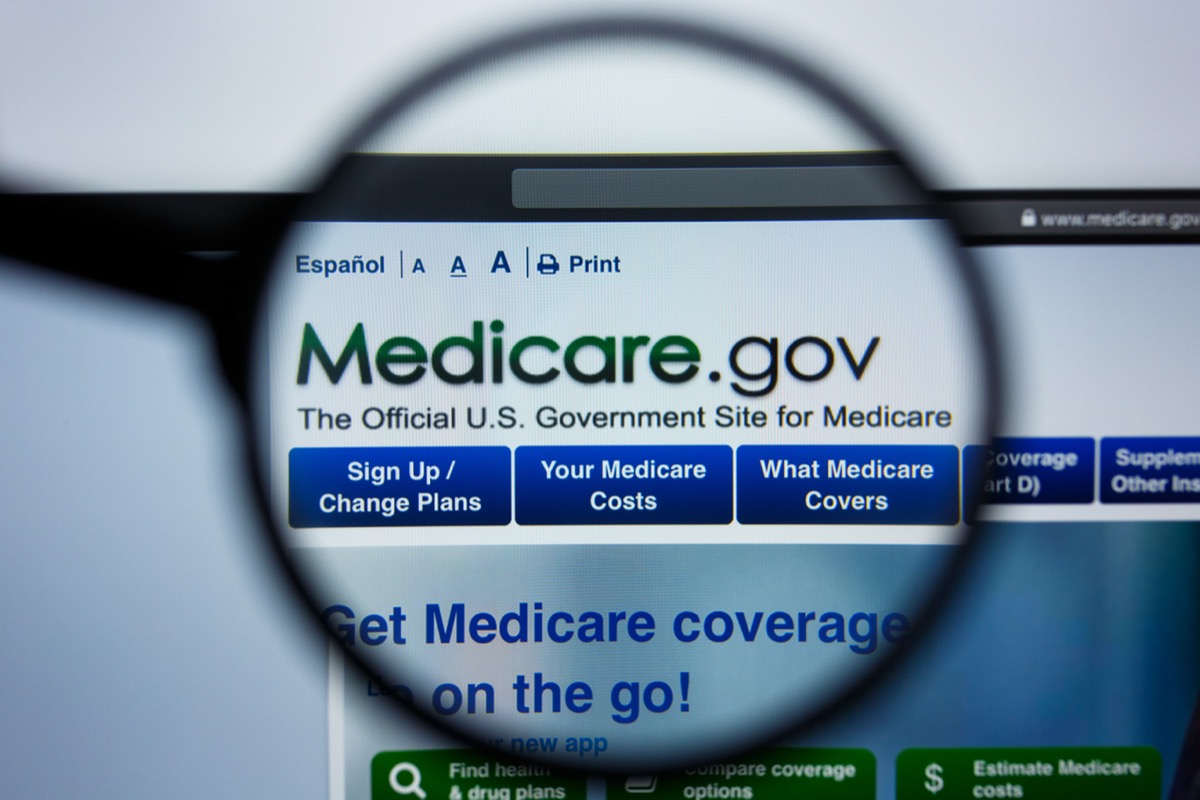4 Popular Medications That Medicare Will Never Cover
You'll have to pay for these four prescriptions out of pocket, experts say.

With many plans and supplements to choose from, signing up for Medicare can be a daunting task. In particular, it can be difficult to determine whether your crucial medications are covered, or if instead you'll be paying a hefty, out-of-pocket price for your prescription drugs. "While Medicare plans do a good job of covering most prescription medications, we commonly see a few medications that aren't covered," says Emily Gang, the leading expert behind The Medicare Coach. Read on to learn about four medications that will most likely never be paid for by Medicare, and how to make the most of your plan despite these glaring gaps in coverage.
READ THIS NEXT: 5 Medications That Could Be Making You Forgetful.
1
Compounded treatments

Most broad categories of medication are covered by one Medicare supplement or another—the key is finding the right coverage for you. However, Gang says that compounded drugs—those that are made by combining or mixing two or more drugs to meet the needs of an individual patient—are unlikely to ever be covered by Medicare. "This is because these medications are not usually approved by the FDA and therefore are not covered by Medicare Part D drug plans," Gang tells Best Life.
Oftentimes, compounded drugs are prescribed to individuals with allergies to a particular drug ingredient, or those who cannot take a certain medication in its usual form. However, you may be able to speak with your doctor about possible alternatives if these drugs are cost prohibitive.
READ THIS NEXT: Over 65? You're More Likely to Suffer a Fall if You've Done This in the Past 2 Weeks.
2
Sexual dysfunction medications

Gang says that erectile and sexual dysfunction medications are another type of drug that Medicare does not cover, since it is not deemed a medical necessity.
If you take medication for sexual dysfunction such as Viagra and Cialis, you may be able to keep costs low by asking your doctor or pharmacist about generic versions of these popular drugs, Gang suggests. "It's worth looking to see if a Medicare drug plan covers these medications, but oftentimes you are better off using a coupon program, like GoodRX, to get these medications at affordable costs," she tells Best Life.
3
Cosmetic drugs

According to Priority Health, drugs that are used for cosmetic purposes will also never be covered by Medicare. This category includes drugs which are used to regrow hair, such as Propecia, or to reduce the appearance of wrinkles, such as Renova.
However, some drugs used to improve skin conditions which may also have cosmetic benefits are covered, so it's always worth inquiring. "Drugs used for the treatment of psoriasis, acne, rosacea, or vitiligo are not considered cosmetic drugs and may be covered under Part D," notes the Medicare Rights Center.
4
Fertility medication

Though Medicare primarily serves retirees, some individuals on disability may receive Medicare benefits before the age of 65. According to a report from the Kaiser Family Foundation (KFF), those people are unlikely to be eligible for fertility assistance unless a doctor deems it medically necessary.
In particular, in vitro fertilization (IVF) and artificial insemination are excluded from Medicare coverage. "Most patients pay out of pocket for fertility treatment, which can amount to well over $10,000 depending on the services received," say KFF experts. "This means that in the absence of insurance coverage, fertility care is out of reach for many people."
For more health news sent directly to your inbox, sign up for our daily newsletter.
Here's how to find out if your medication is covered.

To stay on top of which of your medications are covered by Medicare, Gang recommends reviewing your drug plan formulary each year. "The 2023 plan details and formulary will be released on October 1st, which is a good time to review your medications," she notes. "Medicare Annual Enrollment Period lasts from October 15th to December 7th, and you can enroll in a new plan for the upcoming calendar year," Gang adds.
In fact, she says many people can save significantly on their medications. "Last year our clients, on average, saved over $1,000 by reviewing and changing their Medicare drug plans, so don't miss this opportunity," she advises.
Best Life offers the most up-to-date information from top experts, new research, and health agencies, but our content is not meant to be a substitute for professional guidance. When it comes to the medication you're taking or any other health questions you have, always consult your healthcare provider directly.





















